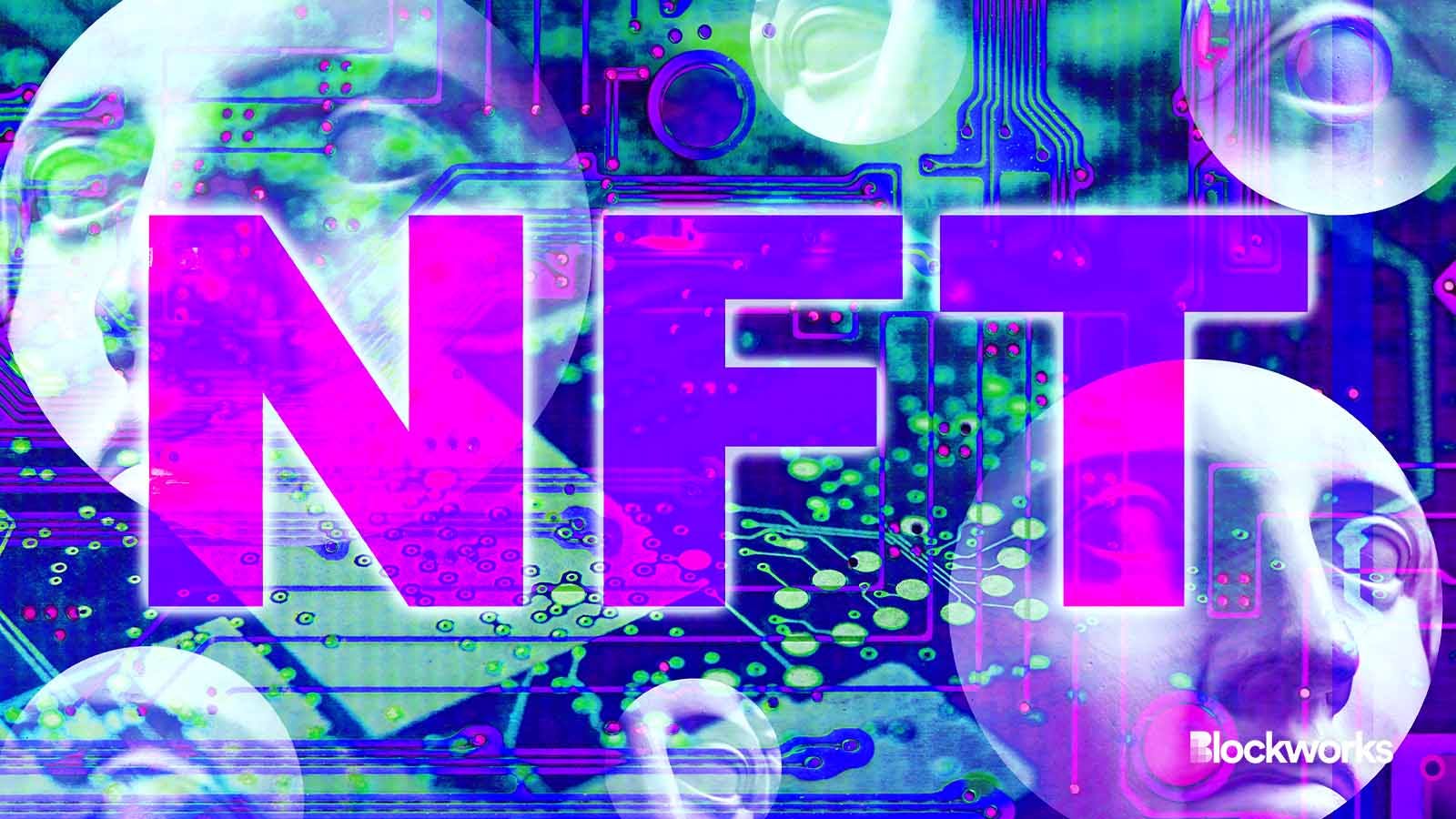Web3 Watch: Farcaster’s most popular posts are NFT and altcoin promos
Plus, NBA faces lawsuit over Voyager marketing, and ‘Nobody’ NFT collection books significant volume

ded pixto/Shutterstock modified by Blockworks
The social media protocol Farcaster generated a lot of buzz this week, driven by the success of its X-like client, Warpcaster.
The standard version of the story goes something like this: In late January, Farcaster released Frames, a feature that lets external sources be natively displayed within the Warpcast feed. This bit of technology allows developers to build cool things, such as in-app Girl Scout cookies order flows. As a result, users have flocked to what might become crypto’s new public square.
This is all true, but the app also comes out of crypto, where the potential for profit is often a driver of user interest. Much of the Farcaster coverage this week showed this graph of Farcaster’s parabolic usage growth:

Data from the same Dune Analytics dashboard shows that each of the 10 most popular posts (casts) this week used Frames to promote NFTs and other assets. Many of the posts required users to like and recast in exchange for a free mint.
Some Warpcasters have taken notice. A host of the /replyguys channel complained they saw “channels be inundated with [altcoin references] over [the] past two days.”
In an interview with Blockworks this week, Farcaster co-founder Dan Romero said he wasn’t overly concerned about financialization on Warpcast and other Farcaster clients.
“Distribution is distribution. I think in the case of crypto, obviously, if you have a wallet, there’s naturally going to be probably a bit more financialization for some of the use cases,” Romero said.
“But I want to emphasize this: I think some of the most creative Frames aren’t overly financialized,” Romero continued.
Read more: Q&A: Dan Romero and Jesse Pollak think this may be Farcaster’s ‘inflection point’
NBA sued over Mark Cuban’s Voyager deal
The NBA was “grossly negligent” in not blocking a promotional deal between now-bankrupt crypto firm Voyager Digital and the Dallas Mavericks, a class action suit filed in a Miami district court argues.
The suit alleges the NBA had a responsibility to review all marketing campaigns pertaining to the league, including Voyager’s with the Mavericks and owner Mark Cuban.
The Mavericks announced a five-year exclusive partnership with Voyager in 2021, offering fans $100 in crypto for signing up to the platform. Cuban and Voyager CEO Stephen Erlich promoted the deal at a press conference with several Mavericks players. Cuban faces a class action suit of his own for his Voyager promotion.
Voyager filed for bankruptcy in mid-2022 during the fallout from the collapse of crypto hedge fund Three Arrows Capital.
Read more: Mark Cuban To Be Deposed Next Month in Voyager ‘Ponzi’ Suit
Voyager’s law firm, McCarter & English, is also named in the suit. It’s the latest in a series of lawsuits athletes, sports teams, and now leagues have faced over ties to crypto firms.
Read more: Golden State Warriors, Steph Curry face class-action lawsuit from FTX investors
One interesting stat:
- NFT collection Nobody, which uses generative AI to let owners chat with their NFT characters, saw 11,208 ether in sales volume this week, according to DeFiLlama. The next-most traded collection did under 3,000 ether in volume.
Also of note:
- Mastercard announced a “Web3 powered trivia competition” where users can compete for UEFA Champions League match tickets in trivia contests unlocked with an NFT pass.
- The NEAR Foundation and D3 Global are applying to create a .near top-level domain (TLD).
- The Avalanche-built first-person shooter game Shrapnel launched early access for some users on the Epic Games store.
Get the news in your inbox. Explore Blockworks newsletters:
- The Breakdown: Decoding crypto and the markets. Daily.
- 0xResearch: Alpha in your inbox. Think like an analyst.






